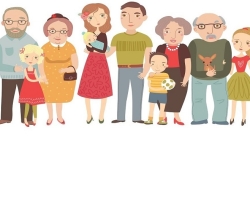Syndrome of emotional burnout is a disease that has become a companion of modern people. Find out in the article what this means and how to deal with emotional burnout.
Content
Emotional burnout syndrome: what is it?
Each century is characterized by their own states. In the 19th century, people suffered from the spleen, in the 20th century many became neurasthenians, the 21st century was characterized by the syndrome of emotional burnout and the subsequent depression.
For the first time, psychiatrist Herbert Freidenberger in 1974 said about the syndrome of emotional burnout.
Important: the syndrome of emotional burnout is a state that is characterized by the gradual exhaustion of physical and mental forces, the moral and bodily fatigue of a person as a result of chronic stress at work.
- Earlier, about 40 years ago, emotional burnout For the most part, workers occurred with such professions as a doctor, a social worker, a fireman, a rescuer, etc. People who have devoted themselves to service and help to people more often face pain, human problems. They come to work inspired, full of strength and energy. But then, opening the door to the kingdom of pain and human misfortune, they understand that there are so many pains, and there are very few of them to help everyone. The situation is exacerbated by the fact that many social professions become less and foster.
- However syndrome of emotional burnout It is characteristic not only for social professions. Even those who do not work with people, for example, programmers, are subjected to this syndrome.
Syndrome of emotional burnout In megacities, it has become a chronic state for many people. Sometimes a person needs just a rest, after which he again with new strength and inspiration begins to work. But if emotional burnout is launched strongly, then even annual leave will not save and will not help get rid of this unpleasant and even dangerous state.
In society there is a cult of a young worker who “burns” with ideas. Such a worker should be multi -sized, fast and effective. Everything in this world is reduced to increase the efficiency of the company, company, business.
A person longs for success, recognition, and for some time he really “burns”. However, a few years later a light bulb can “burn out”, and once a productive employee may be on the sidelines of life. It will be quickly replaced by another, more productive, young and ambitious. And everything will start first.
That's just how to be the person who burned out on the sidelines? There is a way out of this situation, but it is better not to bring yourself to a state of emotional burnout.

Causes and signs of emotional burnout
Some people do not have emotional burnout, although they also work a lot. In others, it comes. Why is this happening? What do people make a mistake that leads them to emotional burnout?
Important: Reason Emotional burnout is the inability of the psyche to cope with the loads, constant tension. Emotional burnout can be compared with a bone fracture. Just as the bone does not withstand a strong blow and breaks, so the psyche does not withstand accumulated tension.
Causes of emotional burnout lies in the following:
- Lack of personal life outside. It is proved that people who work at unloved work, but have an outlet in the form of a family, friends, hobbies, are less likely to be emotional burnout. If there is no life except for work, then burnout can occur with a greater probability.
- Uncertainty in tomorrow. Life makes us be constantly in motion. To hold out "afloat", we must constantly be on the alert. Our life is unpredictable, many are not sure of tomorrow, hence the concern and the feeling that you cannot catch up with the departing train, although you are chasing it with all your might. People understand that you need to earn more, and for this you can not stop.
- Stress in the workplace, which is associated with high load and requirements, the absence of days off and vacations, insufficient reward material and moral, lack of understanding with colleagues and superiors, the risk of dismissal, a fine, reprimand.
- Have a profession to burn outWhere people provide assistance to cancer patients, elderly and helpless, mentally ill, patients with addictions.
- Provoke burnout syndrome psychological injuries (for example, divorce or loss of a loved one), weakening after illness and the inability to recover.
- Loss of oneself and the meaning of life. An aggressive flow of information is directed from all sides per person: social networks, television, messengers. It is very difficult to keep track of everything, an obsessive stream of information can lead to the fact that a person is very tired of all this. A person simply goes astray, loses the meaning of life. The cause of emotional burnout is the loss of the meaning of life.
Before the syndrome of emotional burnout occurs, a person is active, absorbed in his work. Often, at the same time, people begin to abandon their own needs, which are not related to work. But then the first sign of burnout comes. If nothing is done at this stage, then the situation will aggravate.

Signs of emotional burnout:
- Exhaustion. A person begins to experience a feeling of endless fatigue. After sleep, he wakes up tired. Vacation or weekend help to overcome this feeling, but not for long.
- Detachment. A person is trying to cope with burning through detachment. He does not experience emotional responses. The patient, the client ceases to evoke any feelings in him, a person begins to perceive him as something inanimate.
- Fall of self -esteem. A person does not see the prospects, future, meaning in his activity. The work no longer brings joy, “legs do not go there”, there is no more faith in their professionalism.

Stages and symptoms of emotional burnout
Emotional burnout occurs slowly. It develops in several stages. Consider them.
1st stage
- The first stage can be compared with the "honeymoon". A person is in love with his work, he does not go there, but runs. He likes everything, he wants and does even more than they demand from him.
- At the first stage of emotional burnout, a person does not feel fatigue.
- But at the same time, he begins to sacrifice his life to the detriment of work. Friends, personal life, family, hobbies become commonplace, something uninteresting, because they do not bring money. Therefore, a person seeks to work better, invest more in work.
Stage 2
At the second stage of burnout, it is already felt that the “fuel” has become less. A person still works a lot and diligently, but is already beginning to feel fatigue. Weekend, vacation help to return to the desired rhythm. A cup of tea or coffee, a smoke break or a free five -minute helps to brighten up a working day.
But the following situations are increasingly taking place:
- It becomes boring, there are no experiences and freshness of sensations.
- Interest in labor results is reduced. If there is no motivation and stimulation from the authorities, customers, interest will go out faster.
- With clients and patients, misunderstandings may begin.
- A person begins to justify the use of alcohol after a hard day's day.
- At home, the situation is also heating up, because the person was so carried away by work that he was moving away from the family.

Stage 3
In the third stage, work no longer gives joy at all, complete exhaustion has come. He makes that work that a person did quickly at the beginning of his labor path. Coffee, tea does not help bring themselves to working condition. Even a vacation or weekend does not help. Against this background:
- The mood disappears, there is no gleam in the eyes.
- A person becomes irritable, pessimistic, he can clean his irritation on clients, patients.
- There are no plans for the future, life seems to have lost its colors.
- A person becomes indifferent not only to his work and clients, but even to his own life.
- Against the background of emotional burnout, anger and envy of colleagues, who are more successful, may appear.
- It seems that no one sees your merits. You gave the whole soul to work, and you are underestimated.
- More and more often the thoughts are crept in that it is time to change the work.
Stage 4
At the fourth stage, a person completely burns out. He has already crossed the line behind which devastation came. Together with moral devastation, bodily malaise begins:
- Loss of appetite;
- Insomnia;
- Weakness in the body.
Against the background of nervous exhaustion, human immunity is so weakening that he feels constant malaise. During this period, divorces in the family are possible, a deterioration in relations with colleagues and at home to the worst level.
The person is at work, as in hard labor. He hatches "from call to call." Now customers are not indifference in it, but the belief that they themselves are to blame for what happened to them.
If a person has a profession associated with the help of people, then he becomes security at this stage.

Prevention of emotional burnout syndrome
Important: the best way to get rid of emotional burnout is to prevent it. Remember that your success does not depend on the amount of time spent at work. Success is the pleasure of what you are doing.
Our tips will help you avoid emotional burnout syndrome:
- Do your favorite thing. To make your hobby by receiving income is an excellent solution. However, not everyone can turn their hobbies into work. But even if this is not possible, be sure to do your favorite business after work. You yourself will not notice how the tension will leave, your brain will relax. If you constantly think about unloved work, you have much more chances of emotional burnout.
- Create. People of creative professions are less susceptible to emotional burnout. Find the work that will bring you satisfaction, happiness, joy, but not money. It is important.
- Do not compare yourself with others. Refuse the habit of looking at others and comparing yourself with them. If your classmate at 25 headed the company, and you still work as a service personnel, this does not mean anything. The main thing is to ask yourself the question: “Are you happy? Does your work bring you joy? ” Go your way and do not look at the roads of others.
- Eat an active life after work. After the end of the working day, you should begin your own personal life, which is in no way connected with work. Go with your friends in the cinema, walk with your family, visit the gym. You can not live the expectation of the beginning of each working day. Your work is only part of your life, but not all life.
- Be prepared for stress. Some professions imply a stay in a state of stressful situations. For example, a firefighter profession. Accept this, be prepared to face stress in your professional activity. In the same way, teach yourself to disconnect from stress and thoughts about work by crossing the threshold of your office. If negative emotions eat you, give them a way out. Otherwise, they will accumulate and harm. There is no magic remedy for stress. Someone finds a way out in prayer, meditation, sports, walks, massage. Just do not advise finding comfort in alcohol.
- Take care of health. Supporting health, good health is very important. Even young people are prone to loss of health if they work at sedentary work. It is unacceptable to lose health due to a strong hobby for their work. Find the time for going to the gym, exercises, running, swimming, take up dancing.
- Be honest with you. Do not let society and the aggressive stream of information decide for you what you need, what do you want, how do you live. Think with your head, live with your interests, dictate your values \u200b\u200bto yourself.
- Sometimes spend time "useless". In the age of mobility and effectiveness, few can afford to spend a day aimlessly. But sometimes it is very useful, just to lie in bed, do nothing to work, to get income, just to be “afloat”. Even if you do nothing to achieve the result, make a profit, you can still be thoughts in your work. Forbid yourself to do this at least once a week. Just sometimes spend the day "useless." Sometimes one such day can bring more benefits than many other work.
- Make a reboot. If the vacation does not help and there is an opportunity, go through the advanced training course. It is desirable that this happens remotely from work. During this time, you will draw new knowledge that will help to continue your work efficiently and efficiently, and rest in full.
- Act. There is a stick about the two ends. It would seem that if emotional burnout has occurred, it is worthwhile to just change the work. But where is the guarantee that in six months in a new job the same thing will not come? But sometimes the grandfather’s method is to throw it into the water to teach to swim, it turns out to be the most effective. If the reboot does not help, leave. Find the strength to act in yourself.

How to track emotional burnout from employees: advice to managers
Important: to worry about preventing burnout, first of all, an employee, a professional should. But to managers, too, it will not be superfluous to take care of their employees. After all, the correct mood of the workers, their satisfaction and the stable nervous system leads to an increase in performance, greater productivity and the development of the case.
How managers can prevent emotional burnout from employees:
- Try to resolve conflicts between employees at once on the spot. After all, dissatisfaction with a professional environment is one of the reasons for emotional burnout.
- Do not forget about the bonus of workers. Prizes are an excellent source of motivation and an occasion to avoid emotional burnout. It is proved that wages only for the first two months is a motivating factor.
- If you saw that a good and reliable employee burns out, give him a small riddle Or come up with another way of motivation. In a state of emotional burnout, a person cannot see a way out, and a small vacation or a bonus will pay off his work in the future.
- Joint vacation ralles the team. Give the employees the opportunity to drink tea, coffee in a specially designated room. A small rest, even if it is 15 minutes, can become very effective. Organize a meeting of employees outside the workspace.
Emotional burnout is a dangerous phenomenon of our time. In a hurry, focus on the result, people were too filled with the spirit of consumption, ceased to communicate, practically deprived of relations with others, and do not relax. Therefore, emotional burnout can be considered a payment for our pragmatic age. We wish you never to encounter this syndrome, and if you are faced, you will be able to get out of this state.







